Running in Inner Mongolia and how to appreciate the US Congress
I swear there is a connection here
I guess I DO kinda like Congress. Weird.
Have you ever heard about ANYONE liking Congress?
The first time I had a fleeting moment of affection for our much-maligned elected body was in China.
Except for my trip to Inner Mongolia, I never saw the sun. It was forever blotted out by gray smoky skies. Beijing was the worst, but I also spent time breathing smog in Shanghai, Hangzhou, Suzhou, Yangzhou and Nanjing. As I coughed up my daily allotment of black dust, I experienced a newfound appreciation for the Clear Air Act and the EPA. First passed in 1963, Congress continues to update the Clean Air Act.
Yay for them!
Every politician who wants to roll back the EPA should spend a month in Beijing.

I had yet another wave of appreciation for Congress when I put together the lessons described below.
Last year was the first time I’d ever taught American Government. Compared to World History, there are SO MANY resources for Gov teachers. I found this lesson on the National Archives website.
The lesson describes the 20 different “jobs” of Congress and provides 20 different primary source documents. Each document is an example of Congress fulfilling one such job, and students are expected to match each document to the job. For example, there is a letter Abraham Lincoln wrote to the Senate asking them to confirm his latest nominee (Ulysses S. Grant to be Lieutenant General).
I don’t teach the lesson exactly as prescribed though. Before handing the stack of primary sources to students, I take them through this hefty lecture. This Google Slides Presentation teaches students about the 20 jobs of Congress. Each slide has a video clip of a member of Congress doing one of those jobs. Most of the clips are from the past year, so students get a healthy dose of current events in these lessons. An example: one job of Congress is to create rules for naturalization. I show Dick Durban’s speech advocating for the dream act. If you ever want to feel some love for a member of Congress (assuming you are in favor of DACA), watch this speech.
Here is the student worksheet. Students complete the middle column as they watch the modern video examples (that usually takes about 2-3 50-minute class periods). The righthand column they complete as they sort through the stack of primary source documents. I print out 5 sets of the documents (one for each table group) so they can all share and work together.
Maybe your students will gain a glimmer of appreciation for Congress too. Maybe I should do these lessons all by myself the next time I get frustrated with whatever is going on in Washington D.C. Or I could return to China, breathe in some smoke, and remember that Congress built the Clear Air Act and the Environmental Protection Agency. Thank you again, Congress :)
Not that I want to complain too much about China though. It can be beautiful, through the smoke.
A place to explore: Inner Mongolia
In 2010 I traveled to China (for the 2nd time) to teach summer English camp. I got to China a few weeks early to explore Beijing and run the Genghis Khan Grasslands Half Marathon before my teaching stint.
When I landed in Inner Mongolia after a few days in smoggy Beijing, it felt like Oz. The grass was bright green, the skies were blue.
The Atlantic published an article about the race here. The writer complains the 2013 race was poorly marked and lacking in water stations. I don’t recall those problems with my 2010 race, but I do remember the pre-race banquet she described:
Held in the Mongolia Khan City, a kitschy collection of concrete yurts surrounding a vast round yurt, the feast featured the worst kind of Chinese banquet food, plus an entire roasted sheep that was brought out on a platter, its head extended toward the sky in an agonized death grimace. As the meal ended, the music began: traditional Mongolian songs, so over-amplified that our inner ears hurt, followed by a rock band, some acrobatics…
Good times.
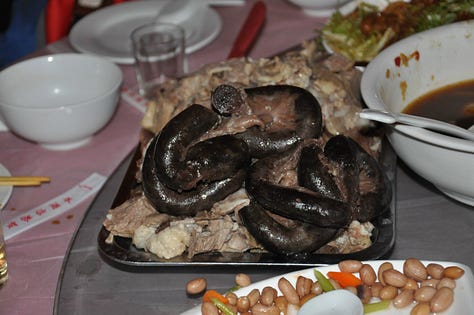
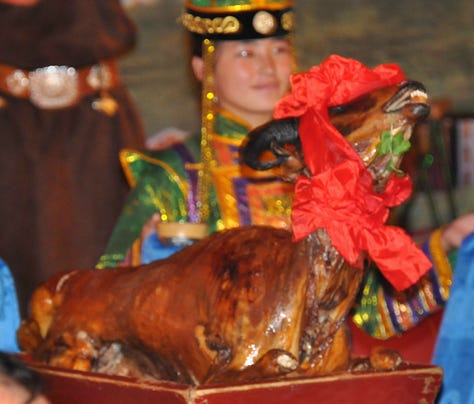

The race itself was gorgeous, tracing 13.1 miles along dirt paths. Rolling hills, wild horses, miles of grasslands, and yurts all figure prominently in my race memories.

On race day, I befriended Sue, an English-speaking, marathon-running Chinese lady from Shanghai. She and I paid a driver to drive us around the countryside. I remember eating cheese that had been stored under a rock and shearing a sheep.
A book to read: Stand on the Sky by Erin Bow
I struggled a bit trying to come up with a book to suggest. I remember laughing my way through J. Maarten Troost’s LOST ON PLANET CHINA, but when I went back to glance through the book I was a bit horrified at the xenophobic sarcasm that I thought was funny back in 2008. Yikes. This critique by a Chinese reviewer is spot on.
I could be basic and write about THE GOOD EARTH. RIVER TOWN, a best-seller about an American who spent two years teaching in China, is another obvious choice. I also remember liking CHINA RAOD, but I don’t want to reread it and I don’t remember enough of it to discuss here. I also really loved GIRL UNDER A RED MOON, but I think I’ll save that book for another China-based newsletter. It’s a middle-grade book about a young girl who had to flee her village during the Cultural Revolution.
Finally, I settled on STAND ON THE SKY by Erin Bow. The book is set in Mongolia, not China, but I want to tell you about it anyway. Also, I usually write about history books and this one is contemporary. I’m breaking so many (two) of my rules here.
A bit about the book: In 12-year-old Aisulu’s Kazakh community, only men and boys can train eagles. But when her brother is rushed to an expensive hospital in Ulaanbaatar, she has to win prize money at the Eagle Festival to fund his care and keep her family from having to abandon their nomadic life and the mountains where they’ve always lived. Plus, he got injured as she rescued an eagle, so there is that.
The book is full of grassland and mountains and horses and yaks and golden eagles. Aisulu and her family live in gers with canvas walls that can be moved with the seasons. The author traveled to Mongolia and lived with eagle hunters to write the book, and it shows. The details are beautifully immersive.
I loved reading this book to myself, but for you elementary teachers out there, this would be a great read-aloud for a 4th or 5th-grade classroom.
So there you have it. Congress love, China smog, Inner Mongolia half marathons, and a book about an eagle-hunting Kazakh pre-teen. This newsletter had a bit of everything, didn’t it? Good job making it all the way to the end!

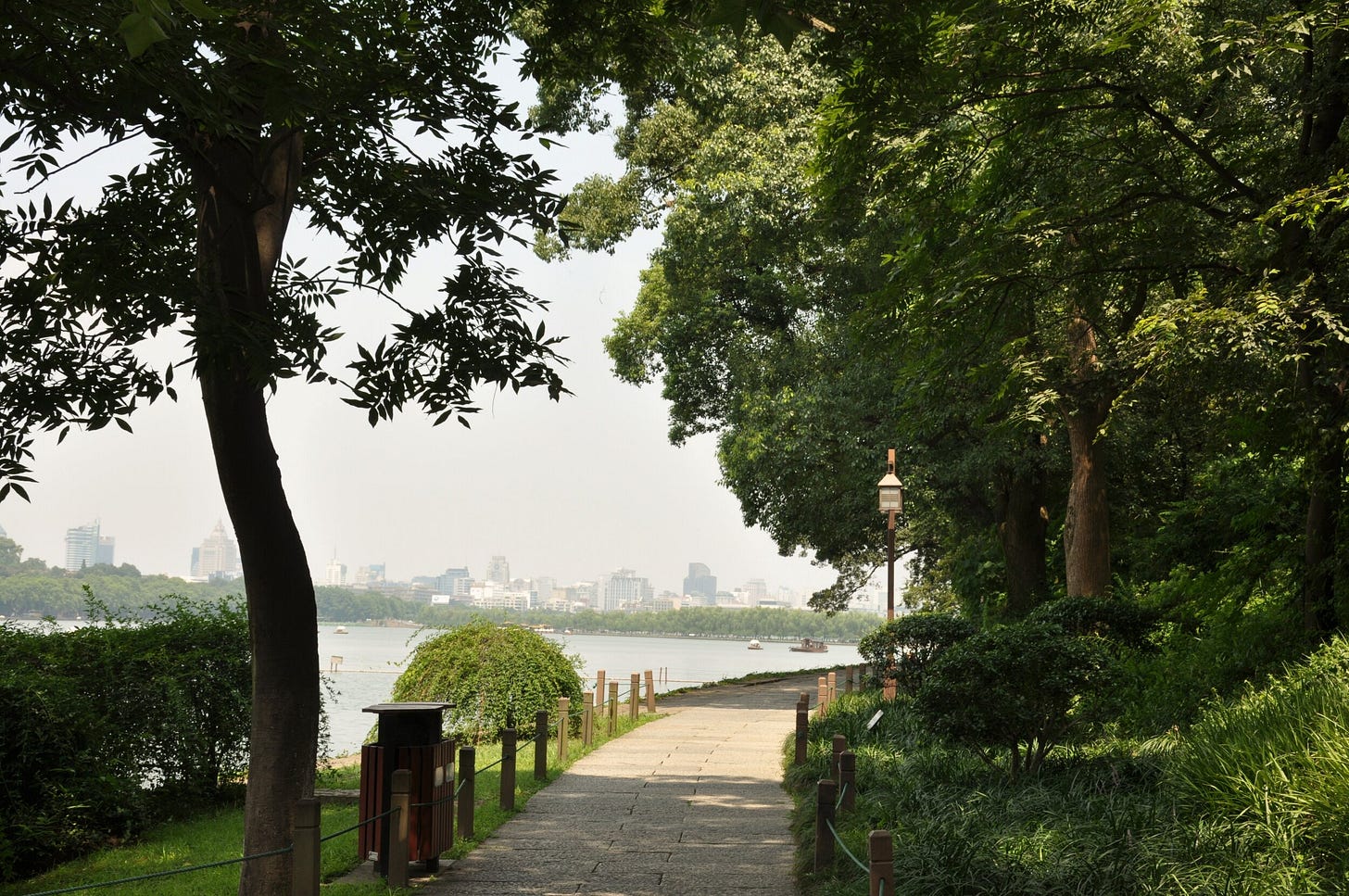


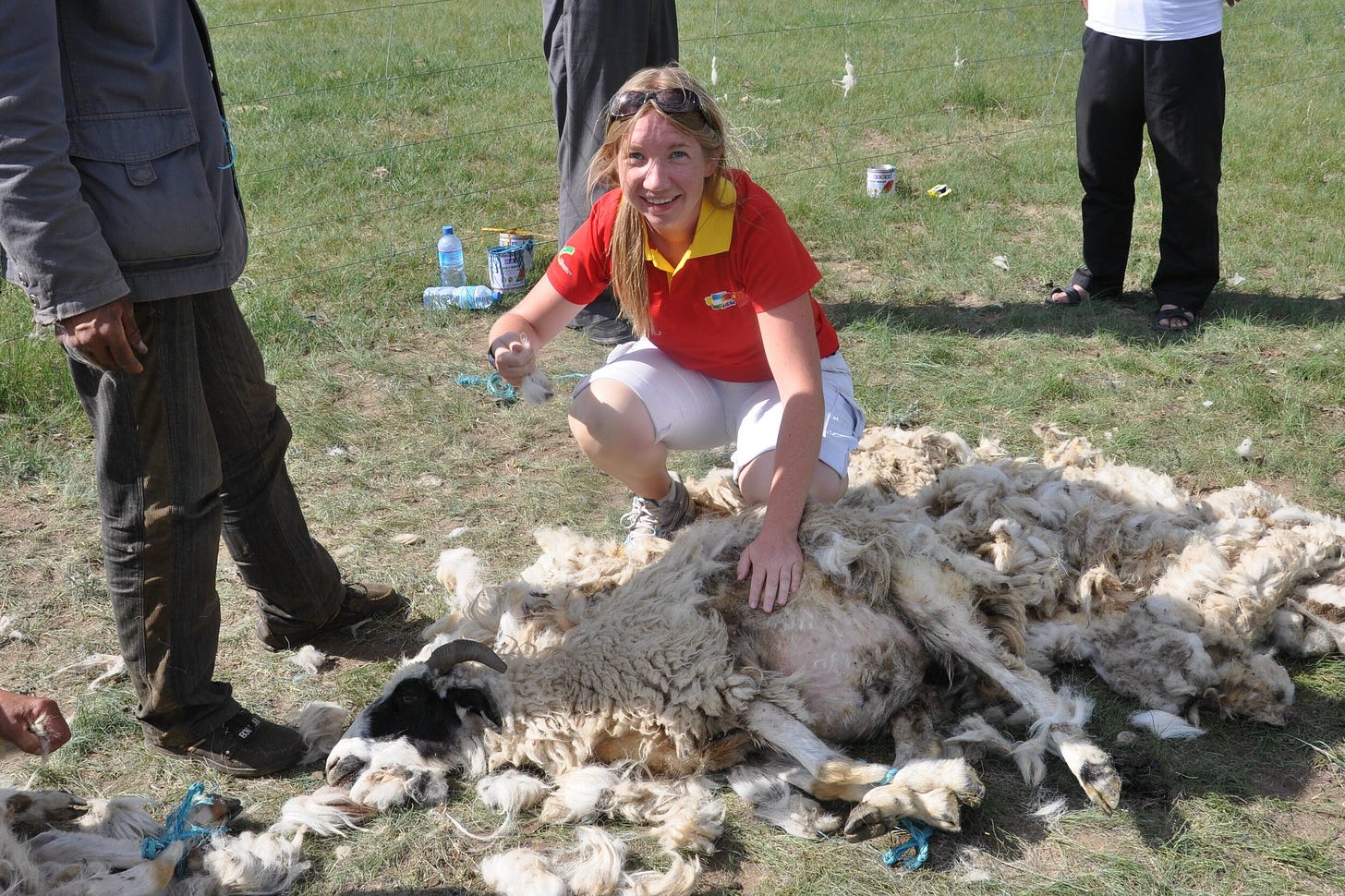
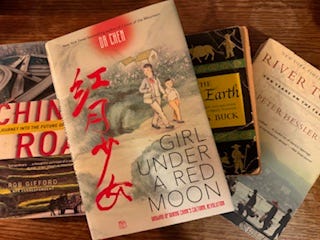
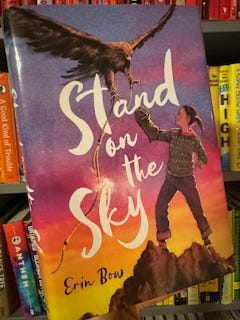
Fascinating post, Jenna. This reminds me of the impact of the Clean Air Acts of 1956 and 1968 in the UK, which certainly cleaned up London.
I once read writer the novel “Wolf Totem" by Jiang Rong set in Inner Mongolia. It was good in Jack London kind of way.
Great post! I wish the under-educated, disruptive, extremist congresswoman who represents my district (Lauren Boebert) could read and do some of your students’ lessons and gain more appreciation for the institution and its history.
Also, that’s great you ran in Mongolia. I’ve read about the Mongol Derby multi-day horse endurance race but wasn’t aware of any running races.